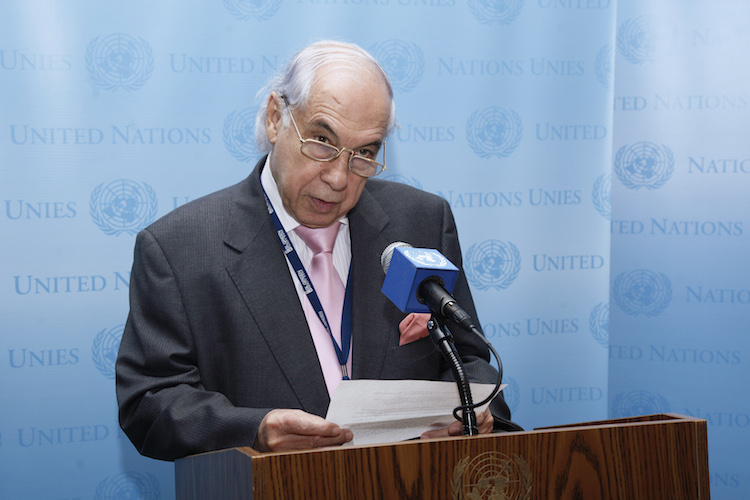By Sergio Duarte, former UN High Representative for Disarmament Affairs*
Originally posted on IndepthNews.net
NEW YORK (IDN) – Despite being shunned by the nine possessors of nuclear weapons and most of their allies, the first part of the negotiations mandated by the United Nations General Assembly on a legally binding instrument to prohibit nuclear weapons, leading towards their total elimination, ended on an optimistic tone on March 31.
Delegations from 120-plus States will return to New York in mid-June to start discussing the draft treaty to be presented by the President of the Conference, Ambassador Elayne Whyte-Gomez of Costa Rica.
At the March Session there was wide convergence of views on the core prohibitions, such as stockpiling, use, deployment, acquisition, development and production of nuclear weapons. Broad support for prohibiting the hosting and transfer of such weapons was also noted.
Questions remain on provisions related to verification of compliance, clauses for accession by nuclear-armed and other States, timelines for elimination of stockpiles and the relationship of the new instrument with existing treaties such as the Nuclear Non-Proliferation Treaty (NPT) and the Comprehensive Test Ban Treaty (CTBT), among others. These and other issues will need to be further discussed during the second Session (June 15-July 7).
Most of those who support these negotiations would probably agree that they will not bring about a sudden shift in the mindsets of the nine governments that threaten the rest of the world with the willingness to use the most cruel, indiscriminate and destructive weapon ever invented. It is undeniable, however, that even at this early stage of the negotiations public opinion in many countries has begun to pay attention to the potential impact of a prohibition treaty. Press articles and specialized publications have started to discuss the effects of a ban and its perceived advantages and shortcomings.
All States, without exception, support nuclear disarmament as a worthy and necessary objective. The mantra “a world without nuclear weapons” has become the stated and uncontroversial goal of the community of nations. The decision of the United Nations General Assembly to negotiate a treaty outlawing nuclear weapons has brought new impetus to debate on how to get rid of nuclear armament.
Jonathan Granoff is the President of the Global Security Institute, a representative to United Nations of the World Summits of Nobel Peace Laureates, a former Adjunct Professor of International Law at Widener University School of Law, and Senior Advisor to the Committee on National Security American Bar Association International Law Section.







